Acknowledgments
We gratefully knowledge those who prepared the ground, planted the seeds, watered the crop, and cultivated the field now ready to harvest. We begin with those professors who in the 1950s grounded our religious and philosophical thinking: Joseph DAlfonso of Bates College; Dean Walter Muelder, Paul Johnson, and Dean of the Chapel Howard Thurman of Boston University School of Theology; Richard Niebuhr, Hal Luccock, and Kenneth Underwood of Yale Divinity School; and William O. Brown of Boston University African Studies Program. All these scholars considered love, power, and justice, individual and social, as part of the same fertile field.
In the 1990s, the seeds were planted when we read Edward Magdols book on Owen Lovejoy and met Dr. Clifton Johnson of the Amistad Research Center. Next we became acquainted with Lincoln scholars, including Michael Burlingame, Rodney Davis, Allen Guelzo, Matthew Pinsker, and Illinois historian Thomas Schwartz, and antislavery and political abolitionist scholars, including Frederick Blue, Merton Dillon, George R. Price, Stacey M. Robertson, Mitchell Snay, James Brewer Stewart, and Hans Trefousse.
Then we encountered and became deeply indebted to two scholars who know how to teach by asking perceptive questions and pointing in new directions. They are the thorough and challenging reviewers of our manuscript, Stewart Winger of Illinois State University at Bloomington and Ed Crowther of Adams State College, Alamosa, Colorado.
Many able and cooperative librarians and archivists located new seeds. Special among them are John Hoffman of the Illinois Historical Survey; Kathryn Harris, director of the Abraham Lincoln Presidential Library, and her staff; Pam Lange of the Bureau County Historical Society; Lee Hampton of the Amistad Research Center; the always helpful librarians at Northern Illinois University in DeKalb; and all the staffs at the historical depositories listed in the notes.
Some of those who encouraged us to plant the seeds we had discovered were politically invested. The many prophetic pastor-preachers of the civil rights era and our own parishioner, the Honorable Idamae Garrott of Montgomery County, Maryland, gave us experience and insight into campaigning, legislating, and governing as they baptized us in realpolitik. We also were greatly influenced by the Reverend Harry Applewhite, George Haley, and the Reverend Theodore Ledbetter of Washington, D.C.
Friends and acquaintances watered the crop as they graciously listened and creatively responded to the multiple variations of How was Owen Lovejoy Lincolns best friend? Friends include William Furry and the Illinois State Historical Society Symposiums; Thomas Schwartz and the Illinois Historical Preservation Society Conferences; James B. Stewart and the young academicians at annual gatherings of the Society for Historians of the Early American Republic; and those who shared books, articles, and newspaper clippings about Lovejoy and Lincoln.
Descendants of the churches that Owen Lovejoy nurtured in Illinois have shared their commitment. The community of Princeton preserves the Lovejoy Homestead. Ezby Collins has been one of its docents. The Reverend Gordon Grant, former pastor of Hampshire Colony Church, has hosted Lovejoy Society symposia, and the Reverend Mary Gay McKinney, pastor of Open Prairie United Church of Christ, continues Lovejoys congregation. The Reverend Richard Taylor of the Historical Council of the UCC has clarified the denominational connections.
Our efforts have been sustained by the Lovejoy Society of the Illinois Conference of the UCC, which studies the lives of Elizabeth, Elijah, and Owen Lovejoy. Members of its board of directors have added greatly to our work, especially Marlene Meeter, the Reverend Robert Meissner, and Lorna Vogt. We have also been supported by the children of First Congregational Church, DeKalb, with the help of Barbara Meisenheimer Mitchell. Northern Illinois University English professor Glenn Meeter has read many portions of our manuscripts over the years, leading to their improvement. Other supportive friends and members of the Lovejoy Board include Tim Blickhan, the Reverend Robert and Joyce Dell, the Reverend Joseph Gastiger, Clinton Jesser, Robert and Pat Suchner, and Lolly Voss.
Colleagues and other groups who provided intellectual stimulation were Sarah Cooper, Sarah Criner, the Reverend Mary Gay McKinney, the Reverend Robert Sandman, and the Reverend Bennie Whiten; the Adult Study group at Pilgrim Church, Oak Park; and the DeKalb Writers Group, led by Dan and Maylan Kenney.
Our family contributors include Jane Anns brothers, Tony Stoneburner, professor of English at Denison University, Granville, Ohio, and John Stoneburner, professor of religion at Guilford College, Greensboro, North Carolina, and the supportive and patient family of our daughter, Deborah: her husband, Bill, and their children, Kyle and Kaitlin Kent.
Most important, this field would not be ready for harvest without the cultivation by able and disciplined professionals and consultants at the University of Illinois Press. They perceived its potential, weeded out the excesses, and shined enough new light to let the crop grow. We thank insightful editor in chief Laurie Matheson, skilled copyeditor Ellen Goldlust, assistant acquisitions editor Dawn Durante, EDP manager Jennifer Comeau, art director Dustin Hubbart, and catalog and copywriting coordinator Kevin Cunningham.
Executive Mansion, Washington
May 30, 1864
Hon. John H Bryant
My Dear Sir,
Yours of the 14th. Inst. inclosing a card of invitation to a preliminary meeting contemplating the erection of a monument to the memory of Hon. Owen Lovejoy, was duly received. As you anticipate, it will be out of my power to attend.
My personal acquaintance with him commenced only about ten years ago, since when it has been quite intimate, and every step in it has been one of increasing respect and esteem, ending, with his life, in no less than affection on my part. It can be truly said of him that while he was personally ambitious, he bravely endured the obscurity which the unpopularity of his principles imposed, and never accepted official honors, until those honors were ready to admit his principles with him. Throughout my heavy and perplexing responsibilities here to the day of his death, it would scarcely wrong any other to say, he was my most generous friend. Let him have the marble monument, along with the well assured and more enduring one in the hearts of those who love liberty, unselfishly, for all men.
Yours truly
A. Lincoln
Bureau County Republican, June 9, 1864


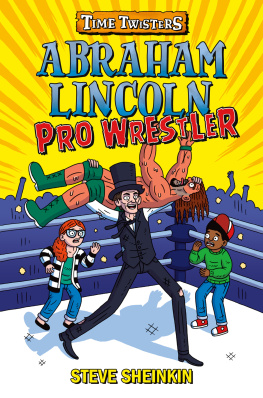
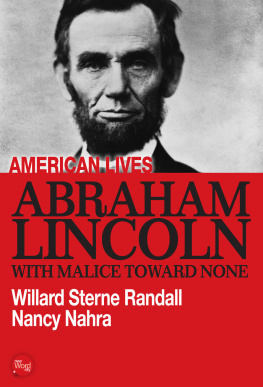
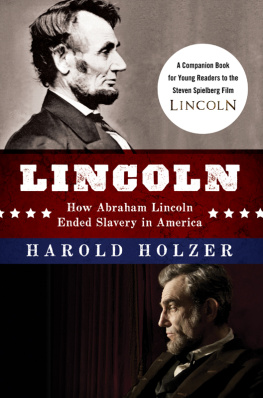

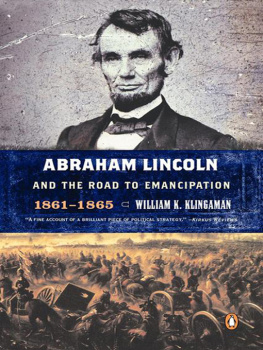
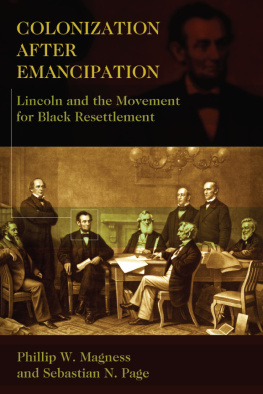


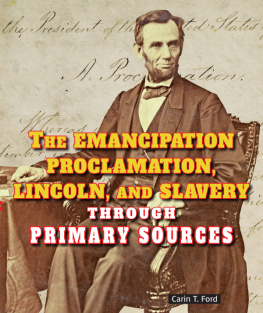

 This book is printed on acid-free paper.
This book is printed on acid-free paper.